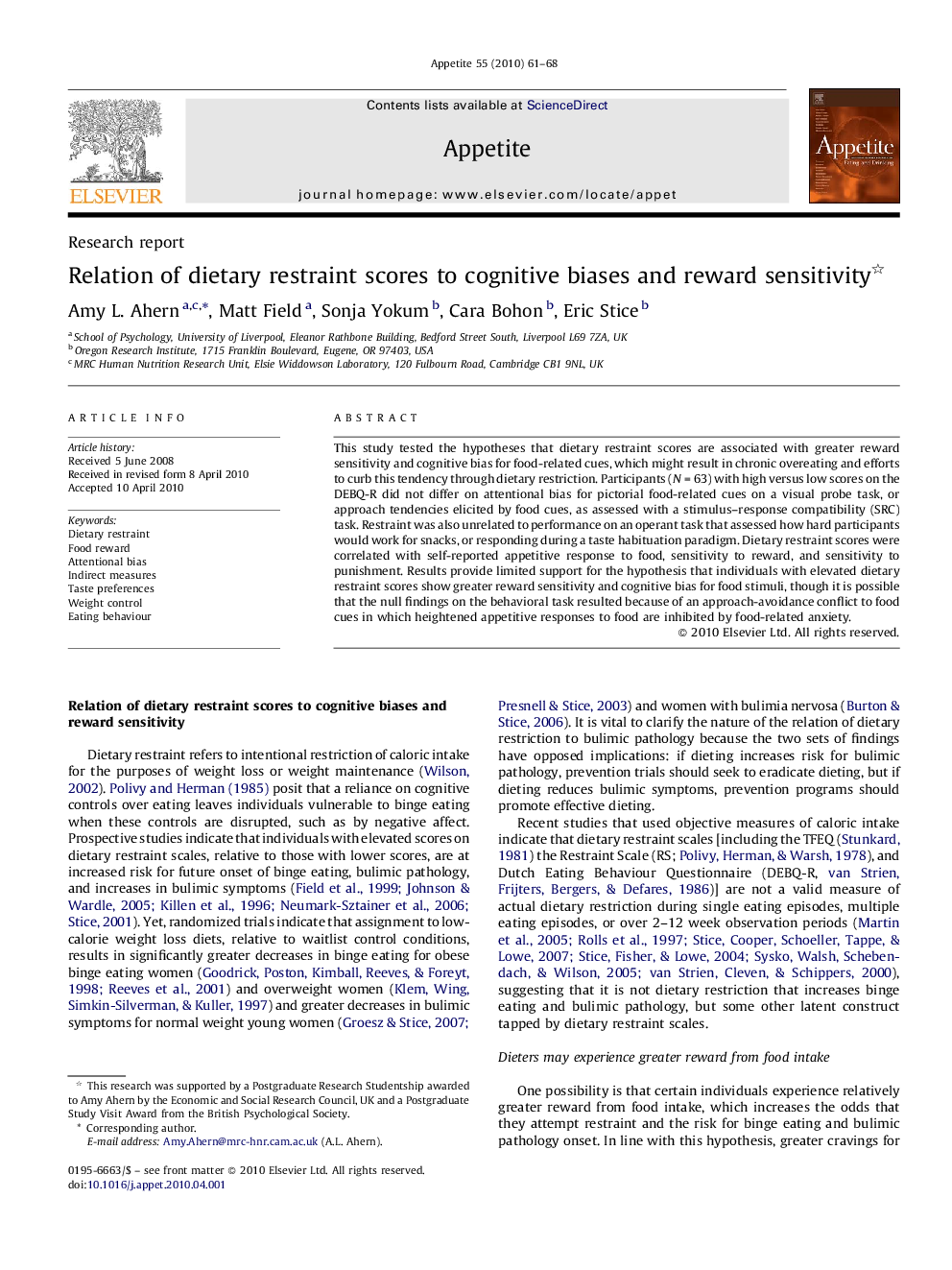| کد مقاله | کد نشریه | سال انتشار | مقاله انگلیسی | نسخه تمام متن |
|---|---|---|---|---|
| 940641 | 924894 | 2010 | 8 صفحه PDF | دانلود رایگان |

This study tested the hypotheses that dietary restraint scores are associated with greater reward sensitivity and cognitive bias for food-related cues, which might result in chronic overeating and efforts to curb this tendency through dietary restriction. Participants (N = 63) with high versus low scores on the DEBQ-R did not differ on attentional bias for pictorial food-related cues on a visual probe task, or approach tendencies elicited by food cues, as assessed with a stimulus–response compatibility (SRC) task. Restraint was also unrelated to performance on an operant task that assessed how hard participants would work for snacks, or responding during a taste habituation paradigm. Dietary restraint scores were correlated with self-reported appetitive response to food, sensitivity to reward, and sensitivity to punishment. Results provide limited support for the hypothesis that individuals with elevated dietary restraint scores show greater reward sensitivity and cognitive bias for food stimuli, though it is possible that the null findings on the behavioral task resulted because of an approach-avoidance conflict to food cues in which heightened appetitive responses to food are inhibited by food-related anxiety.
Journal: Appetite - Volume 55, Issue 1, August 2010, Pages 61–68